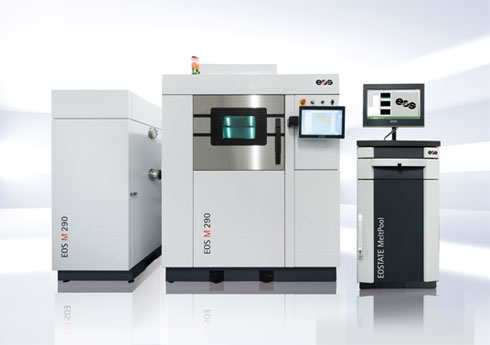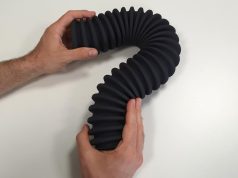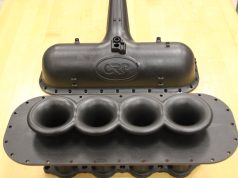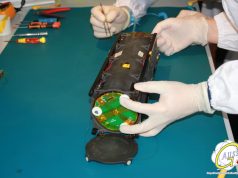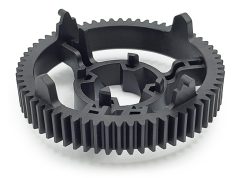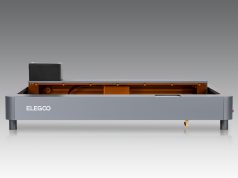At the end of last year, EOS, the global technology and quality leader for high-end solutions in the area of additive manufacturing (AM), introduced EOSTATE MeltPool, an extension for its EOS M 290 system for Direct Metal Laser Sintering (DMLS). It provides automated and intelligent process monitoring in real time – for every spot, every layer and every part. In this way, it creates the conditions for the automated monitoring of the melting pool. At the same time, it enables a view inside the part during the build process, as such paving the way for building an entirely new quality system in the future.
Lufthansa Technik is the first customer to acquire the entire EOSTATE MeltPool solution. Udo Behrendt, Key Account Manager at EOS:
“With Lufthansa Technik, we are pleased to welcome an innovative partner from the industry, with whom we will continue to develop our technology for the demanding requirements for the repair of aviation and aerospace components.”
Simon Feicks, Project Manager Additive Manufacturing, Engine Services at Lufthansa Technik, adds:
“We selected the EOS solution for several reasons. The underlying metal system EOS M 290 impresses with its process stability. The technology has already proven itself with engine manufacturers. During the decision-making process, we were particularly impressed with this particular combination of EOS core competencies. On this basis, we will be preparing for future component generations that are optimised for Additive Manufacturing, so that we can continue to defend our leadership position in an intensely competitive environment.”
The EOS powder-based process complements the already established Lufthansa Technik portfolio of Additive Manufacturing methods and in view of future engine components made with Additive Manufacturing represents an essential part of new repair processes. With EOSTATE MeltPool, the company is introducing a key quality management component to the process, which shall contribute to seamless quality control during the build process in the future. Compared to other Additive Manufacturing methods currently in use at Lufthansa Technik, the DMLS technology opens up a number of potentials that could not be implemented to date: for example, Netshape geometries and the realisation of internal cavities ideally complement the repair portfolio.
In the engine segment, Lufthansa Technik focuses on a hybrid repair approach. Feicks explains that the company wants to get ready for the day when components from the new engine generation, which are made with Additive Manufacturing, arrive in the work shops for repairs, providing customers with cost-efficient and quality-optimised repairs. He adds:
“We have already noticed initial successes in the jig department as we were able to reduce lead times and costs. Yet, this technology requires our mechanics, designers and engineers to think differently. It is precisely for this reason that, in addition to the installation of the system, the education and development of our employees forms a key component for the comprehensive use of industrial 3D printing.”
Feicks concludes:
“Lufthansa Technik firmly believes that Additive Manufacturing is a technology of the future. It is time to change our way of thinking. Milling was yesterday. Today, parts are selectively built where it is needed. Resource efficiency also plays an important role. We do not want to be limited by tools any longer. The limits of production variance are shifting, and we are looking towards a future that we still have to comprehend.”
About Lufthansa Technik
With more than 30 subsidiaries and affiliated companies and over 25,000 employees worldwide, the Lufthansa Technik group is one of the leading providers of technical aviation services. The Lufthansa Technik portfolio covers the entire service range for commercial aircraft, including maintenance, repairs, overhauling, modification and retrofitting, engines and components.
Subscribe to our Newsletter
3DPresso is a weekly newsletter that links to the most exciting global stories from the 3D printing and additive manufacturing industry.



